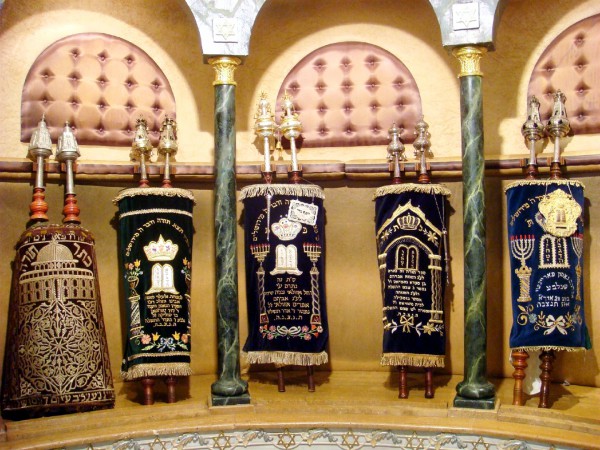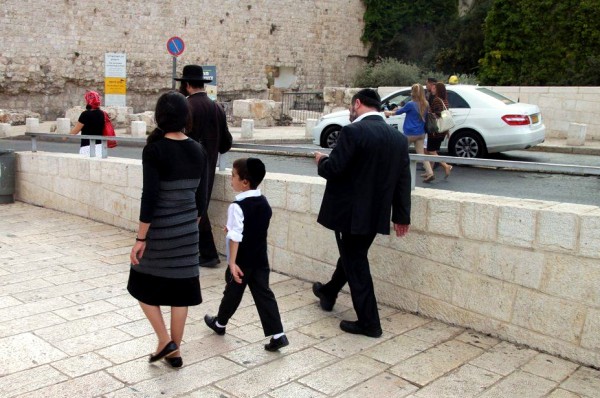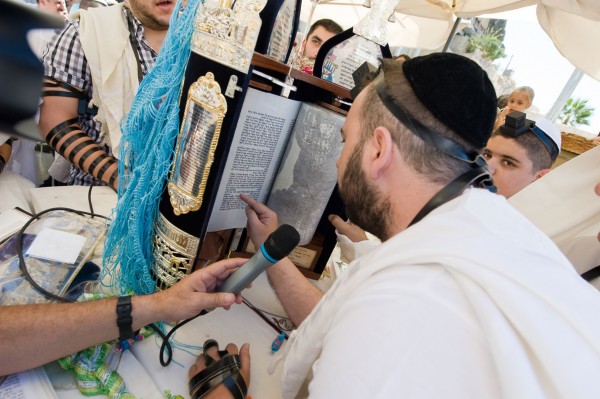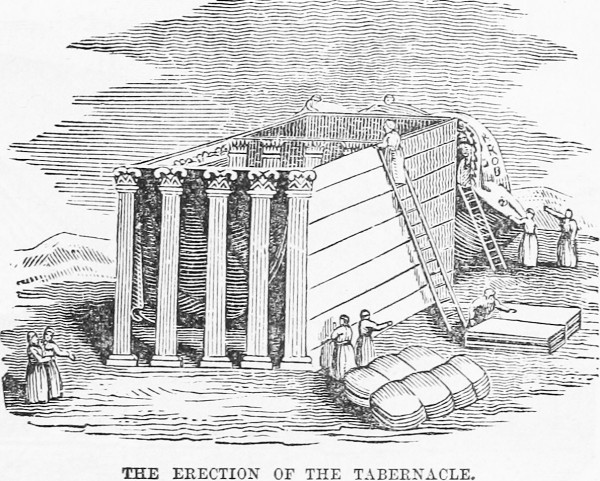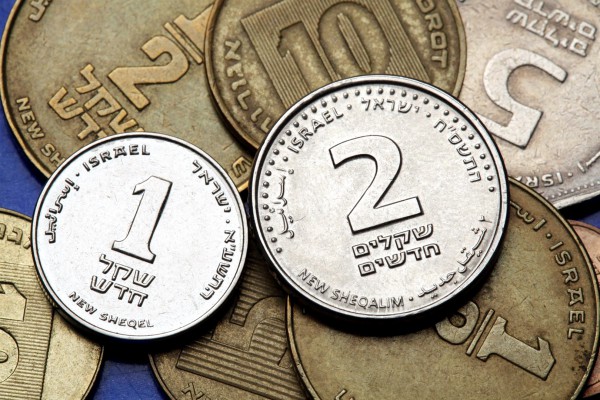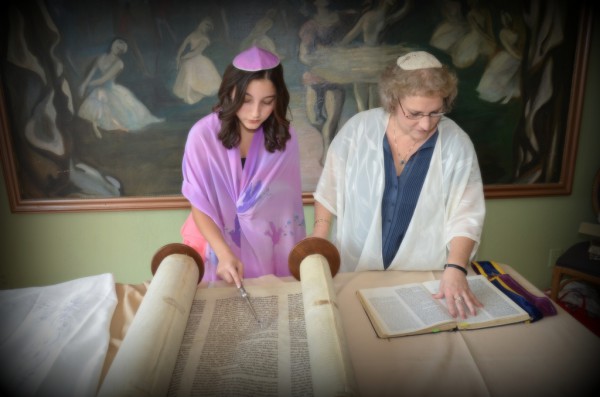VAYAKHEL (And He Assembled)
Parasha Exodus 35:1–38:20; Maftir Exodus 30:11–16; 2 Kings 11:17–12:17; Matthew 25:14–30
Last week, in Parasha Ki Tisa, the people made a golden calf and worshiped it when Moses did not return from Mount Sinai when they expected.
In this week’s Torah study, Vayakhel, a team of wise-hearted artisans implements the instructions to build the Mishkan (Tabernacle) and its furnishings, the instruction for which is detailed in the previous Torah readings of Terumah, Tetzaveh, and Ki Tisa.
Before this is done, Moses assembles the people together, setting the precedent to listen to the Torah on the Sabbath.
He underscores the fact that the message he is conveying to them is not his own, but Adonai’s. That message includes a set of instructions for living a Godly lifestyle:
“Then Moses assembled all the congregation of the sons of Israel, and said to them, ‘These are the things that the LORD has commanded you to do.’” (Exodus 35:1)
Moses begins by underscoring the importance of the Sabbath. Notice that work during the course of the week is framed as a passive endeavor; in other words, it is not commanding that work be done for six days. Judaism understands from this that our work is not the source of our sustenance; rather, it is the way in which we receive God’s blessing. (Chabad)
“For six days work may be done, but on the seventh day you shall have a holy day, a Sabbath of complete rest to the LORD; whoever does any work on it shall be put to death.” (Exodus 35:2)
The consequence for not keeping the Shabbat is made clear: death.
The Israelites, who entered into covenant with the God of Israel to do what He commanded, were not expected to only listen to the message — they were expected to follow through with it, apply it to their owns lives, and turn from their former ways.
Likewise, we are not just to be hearers of the Word of God; we are also to do what He has commanded us.
“Prove yourselves doers of the word, and not merely hearers who delude themselves.” (James 1:22)
If we think that we know the Word of God just because we have heard it, read it or memorized it, then we deceive ourselves. We know the Word when we are doing it by walking in obedience to God’s commands. In the same way, Yeshua said, “If you love Me, you will keep My commandments.” (John 14:15)
Giving for the Mishkan
“From what you have, take an offering for the Lord. Everyone who is willing is to bring to the Lord an offering of gold, silver and bronze; blue, purple and scarlet yarn and fine linen; goat hair; ram skins dyed red and another type of durable leather; acacia wood; olive oil for the light; spices for the anointing oil and for the fragrant incense; and onyx stones and other gems to be mounted on the ephod and breastpiece.” (Exodus 35:5–9)
After instructing the people regarding the Shabbat, Adonai commands the people to bring donations for the building of the Mishkan.
In response to this call, the people open their coffers and give wholeheartedly.
In fact, they donate so much material — gold, silver, and copper; blue-, purple- and red-dyed wool; goat hair; spun linen; animal skins; wood; olive oil; herbs’ and precious stones — that Moses has to tell them to stop giving.
From these resources, the artisans make the following:
- three layers of roof coverings,
- 48 gold-plated wall panels,
- 100 silver foundation sockets,
- the parochet (curtain) that separates the Holy Place and the Holy of Holies,
- the ark and its cover with the cherubim,
- the table and its showbread,
- the seven-branched menorah with its specially prepared oil, and
- other items.
May each of us be so willing and so wholehearted in our free-will giving to what the Lord is calling us to do!
Shabbat Shekalim
This week begins the first of four Parshiot leading up to the festivals of Purim (March 23–24) and Passover (April 22–23). That’s right! These two holidays are just around the corner!
Because this week’s Shabbat is called Shabbat Shekalim (שבת שקלים / Sabbath of Shekels), a special reading called a maftir is added. Maftir shares the same root as Haftarah — FTR, which means to conclude.
This week’s special reading concludes the Parasha and is taken from Exodus 30:11–16; it pertains to the half-shekel tax for the Tabernacle.
Shekalim is the plural form of the Hebrew word shekel, which was the currency of ancient Israel. It is also used today in the modern state of Israel.
Every Jewish adult male (20 years and older) was required to give half a Biblical shekel toward the building and maintenance of the Tabernacle.
Nationally, rich and poor alike set aside personal interests and united by contributing equally to the goal of building the Tabernacle.
In remembrance of the half shekel, at this time of year, some Jewish people contribute to institutes of Jewish learning.
Shabbat Shekalim perhaps is also a good reminder of the importance of financially contributing to the upkeep and operating costs of those who are doing the work of the Lord.
“All who cross over, those twenty years old or more, are to give an offering to the Lord. The rich are not to give more than a half shekel and the poor are not to give less when you make the offering to the Lord to atone for your lives. Receive the atonement money from the Israelites and use it for the service of the tent of meeting. It will be a memorial for the Israelites before the Lord, making atonement for your lives.” (Exodus 30:14–16)
During Temple times, the half-shekel tax, called machatzit hashekel, was due yearly on the first of Nissan.
The collection of this tax was significant and practical since Passover occurs from Nissan 14–22, and these extra funds allowed for the purchase of cattle and sheep for the communal sacrifices.
The call for the tax was issued to the people at the start of the previous month, Adar, giving people time to prepare their payment before the annual pilgrimage to Jerusalem for Passover.
Funds also contributed to the upkeep of the Temple and its vessels, the roads and pathways to the Temple, wages, and the maintenance of the ritual baths called mikvot for the customary pre-Passover purification. If a mikvah were not properly maintained, then it would not be kosher and could not be used for ritual purposes.
Shabbat Shekalim, then, is a wonderful time to renew our commitment to be faithful in our support of those places doing the work of the Lord and where we are being fed spiritually.




